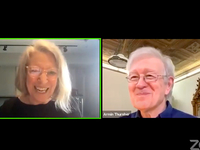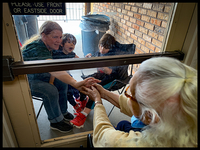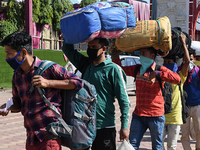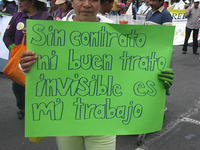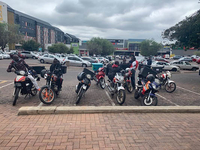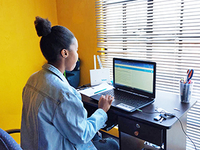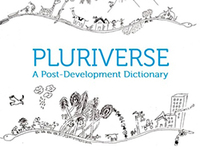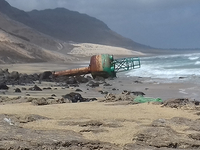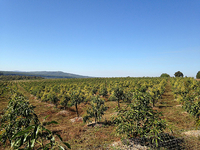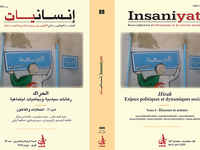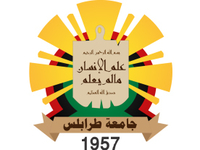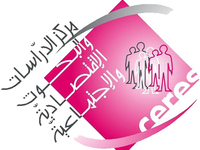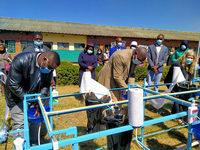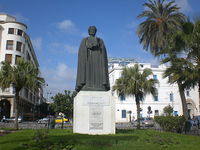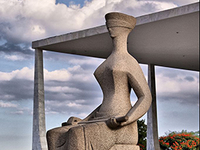GD 11.3 - December 2021
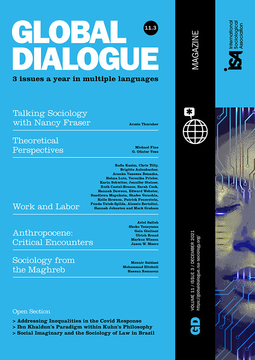
Global Dialogue is available in multiple languages!
Select the language to download the issue.
Editors:
Brigitte Aulenbacher, Klaus Dörre.
Assistant Editors:
Johanna Grubner, Walid Ibrahim.
Associate Editor:
Aparna Sundar.
Managing Editors:
Lola Busuttil, August Bagà.
Consultants:
Michael Burawoy.
Media Consultant:
Juan Lejárraga.
Consulting Editors:
Sari Hanafi, Geoffrey Pleyers, Filomin Gutierrez, Eloísa Martín, Sawako Shirahase, Izabela Barlinska, Tova Benski, Chih-Jou Jay Chen, Jan Fritz, Koichi Hasegawa, Hiroshi Ishida, Grace Khunou, Allison Loconto, Susan McDaniel, Elina Oinas, Laura Oso Casas, Bandana Purkayastha, Rhoda Reddock, Mounir Saidani, Ayse Saktanber, Celi Scalon, Nazanin Shahrokni.
REGIONAL EDITORS
Arab World: (Tunisia) Mounir Saidani, Fatima Radhouani, Habib Haj Salem; (Algeria) Souraya Mouloudji Garroudji; (Morocco) Abdelhadi Al Halhouli; (Lebanon) Sari Hanafi.
Argentina: Magdalena Lemus, Juan Parcio, Martín Urtasun.
Bangladesh: Habibul Khondker, Khairul Chowdhury, Mohammad Jasim Uddin, Bijoy Krishna Banik, Sebak Kumar Saha, Sabina Sharmin, Abdur Rashid, M. Omar Faruque, Mohammed Jahirul Islam, Sarker Sohel Rana, Shahidul Islam, A.B.M. Najmus Sakib, Eashrat Jahan Eyemoon, Helal Uddin, Masudur Rahman, Syka Parvin, Yasmin Sultana, Ruma Parvin, Ekramul Kabir Rana, Sharmin Akter Shapla, Md. Shahin Aktar.
Brazil: Gustavo Taniguti, Angelo Martins Junior, Andreza Galli, Dmitri Cerboncini Fernandes, Gustavo Dias, José Guirado Neto, Jéssica Mazzini Mendes.
France/Spain: Lola Busuttil.
India: Rashmi Jain, Manish Yadav, Rakesh Rana, Sandeep Meel.
Indonesia: Kamanto Sunarto, Hari Nugroho, Lucia Ratih Kusumadewi, Fina Itriyati, Indera Ratna Irawati Pattinasarany, Benedictus Hari Juliawan, Mohamad Shohibuddin, Dominggus Elcid Li, Antonius Ario Seto Hardjana, Diana Teresa Pakasi, Nurul Aini, Geger Riyanto, Aditya Pradana Setiadi.
Iran: Reyhaneh Javadi, Niayesh Dolati, Abbas Shahrabi, Sayyed Muhamad Mutallebi.
Kazakhstan: Aigul Zabirova, Bayan Smagambet, Adil Rodionov, Almash Tlespayeva, Kuanysh Tel, Almagul Mussina, Aknur Imankul, Madiyar Aldiyarov.
Romania: Raluca Popescu, Raisa-Gabriela Zamfirescu, Iulian Gabor, Monica Georgescu, Ioana Ianuș, Bianca Mihăilă, Maria Stoicescu.
Russia: Elena Zdravomyslova, Anastasia Daur, Daria Kholodova.
Taiwan: Wan-Ju Lee, Tao-Yung Lu, Tsung-Jen Hung, Yu-Chia Chen, Yu-Wen Liao, Po-Shung Hong, Kerk Zhi Hao, Yi-Shuo Huang, Chung-Wei Huang.
Turkey: Gül Çorbacıoğlu, Irmak Evren.
GD 11.3 - December 2021
Editorial
Climate change and ecological catastrophes, precarious work, poor working conditions and poverty, economic and social inequalities around the globe – these are some of the pressing issues of our times. In sociological debates we find far-reaching reflections on modernity and capitalism, and how ideas of progress and growth and the economic system are putting the ecological and social reproduction at risk. This issue of Global Dialogue focusses on the analysis of problems which are caused by dominant concepts of human-nature relationships and economic principles, in relation to work and labor as well as to the mode of living in different parts of the world. Some articles go back to the classics, others seek to analyze new aspects in their future relevance and others reflect on important diagnoses of the contemporary developments.
The issue starts with an interview, conducted by the prominent Austrian journalist Armin Thurnher, with the most renowned US-American philosopher and critical theorist Nancy Fraser. She reflects on her biographical experiences on the left, presents her analysis of contemporary capitalism and shows that the pandemic has to be considered as an effect of an economy which erodes and destroys the social and ecological foundation of life.
In the theoretical section, Michael Fine analyzes the ongoing marketization of care and care work and the respective forms of governance and their effects in terms of insufficient care provisioning and poor working conditions. The pandemic and in particular the related deaths in care homes show the destructive tendencies of such a market society. G. Günter Voss presents a profound discussion on work and labor drawing on the classics and modern classics of philosophy, political and social science. Furthermore, his article sheds light on the complex interplay of paid and unpaid work and labor and their significance for the societal life.
The first symposium continues this reflection on work and labor by combining theoretical thoughts and empirical findings. It invites to a journey around the globe, investigates different forms of work and labor and analyzes the respective working conditions. Rafia Kazim shows how the pandemic affects migrant workers in India while Chris Tilly reflects on the global phenomenon of precarious and informal work. A comparative study from Austria, Germany, and Switzerland describes different modes of live-in care provision. Scholars from South Africa and the UK focus on digital work, discuss the function and influence of algorithms, the relevance of platform work in the Global South and future perspectives, as well as the online gig economy and the security of so-called “cloudworkers.”
The second symposium engages in a critical debate around the Anthropocene concept. While some of the contributors update their perspective on this, others propose a more critical examination of the term. All contributions offer critical reflections on the hierarchical relation between humans and (non-human) nature and discuss a wide range of topics in the current sociological debate. Ariel Salleh criticizes the modern concept of nature and the capitalist and patriarchal form of dominance, confronting them with eco-socialist, eco-feminist ideas and approaches from social movements. Shoko Yoneyama and Gaia Giuliani, coming from different strands of research, focus on the contemporary diagnosis of the Anthropocene, showing its limitations and discussing the potentiality of different approaches to redefine human-nature relationships. Ulrich Brand and Markus Wissen investigate how the “imperial mode of living” and the respective modes of exploitation of labor and nature could become hegemonic. Coming from a similar standpoint, Jason W. Moore’s contribution debunks the Anthropocene concept as ideological and instead proposes a geohistorical analysis of the Capitalocene.
Not less important are the insights in the development of sociology. Mounir Saidani solicited articles from sociologists in the Maghreb. Bringing together perspectives from Algeria, Tunisia, and Libya, they reflect on the scientific community, research and teaching, professional and (non-) public sociology in the region.
Last but not least, the ‘Open Section’ offers an analysis of grassroots activities in the face of the pandemic in Zambia, a discussion of Ibn Khaldun’s paradigm of new science and a reflection on the concept of the imaginary in the context of the Brazilian sociology of law.
Brigitte Aulenbacher and Klaus Dörre, editors of Global Dialogue.
Global Dialogue can be found in multiple languages.
Submissions should be sent to globaldialogue@isa-sociology.org.

